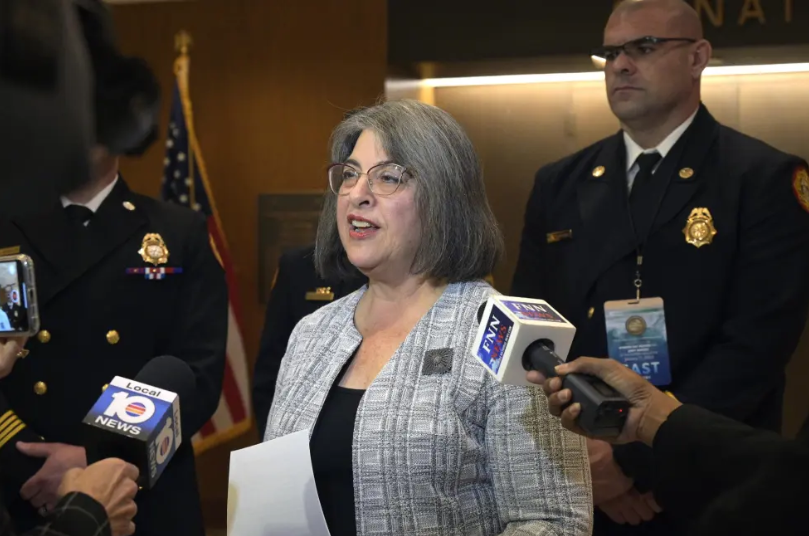Every day, buried power, water, gas, internet and other utility lines are damaged 71 times across Florida. But all of those accidents could be avoided with just a simple phone call or click.
That was one major takeaway from Common Ground Alliance’s 2025 Conference & Expo, held this week at the Orlando World Center Marriott.
The Common Ground Alliance is the only national nonprofit, nonpartisan association working to prevent damage to underground utilities. It brings together leaders from 16 industries, including oil and gas pipeline operators, construction and equipment manufacturing companies, 8-1-1 call centers and underground locating technology companies. The Alliance turns 25 this year.
Some 1,600 damage prevention leaders attended the 2025 conference, making it the largest event of its kind in the U.S., as well as a return to Orlando following the group’s successful 2023 annual conference.
In all, buried utilities are damaged more than 190,000 times each year nationwide, about once every three minutes. The damage costs the U.S. $30 billion annually.
And Florida leads the nation among U.S. states for these accidents, with nearly 26,000 incidents of damage to buried infrastructure each year. In Florida, digging snafus have contributed to road collapses in West Palm Beach, water main breaks and boil water notices in Daytona Beach, and even fatal accidents in Southwest Florida.
The problem could get even worse, with utilities increasingly moving underground in Florida. Tampa Electric Company has invested $100 million per year to bury overhead electric lines in recent years, while Florida Power & Light has cited underground electric lines as important for hurricane recovery.
“As we mark this milestone of 25 years of damage prevention insights, this year we reflected on the past by looking towards the future of solutions, innovations, and partnerships helping reduce the damage that risks lives, property, and disruption to Florida’s businesses and communities,” said Sarah K. Magruder Lyle, President and CEO of the Common Ground Alliance and Executive Director of the Damage Prevention Action Center.
“We thank Orlando for the warm welcome back, and we’re grateful to the attendees and sponsors helping us raise awareness of what’s at risk and how to protect the critical buried infrastructure on which all Americans rely.”
That awareness has been key to the Alliance’s work, which has gained some bipartisan attention. That includes welcome messages at the concert from Senate President Pro Tempore Jason Brodeur and Reps. Dan Daley, Chip LaMarca and Allison Tant, as well as Central Florida-area Reps. Rita Harris, Johanna López and Leonard Spencer. Brodeur and LaMarca are Republicans, while Daley, Harris, López, Spencer and Tant are Democrats.
Joshua Bowes, Military and Veteran Affairs Director for Democratic U.S. Rep. Darren Soto, was also on hand to learn about veteran hiring efforts from company leaders at Badger, UtiliQuest and other conference sponsors.
The Damage Prevention Action Center — the industry’s advocacy arm — also met at the conference to discuss key state and federal issues impacting damage prevention. That includes the Promoting Innovation in Pipeline Efficiency and Safety (PIPES) Act, legislation in Congress that would allocate funding for protecting buried infrastructure.
It has some bipartisan support, including from U.S. Rep. Dan Webster, who chairs the House Subcommittee on Railroads, Pipelines, and Hazardous Materials.
Acting Administrator Benjamin Kochman of the U.S. Pipelines and Hazardous Materials Safety Administration also spoke on behalf of the Donald Trump administration’s push to increase American energy production. Despite ease of access, Common Ground Alliance data shows that more than 27 million Americans won’t contact 811 before they dig. That represents nearly half of all those planning digging projects in the coming year.
Even those planning do-it-yourself projects, including gardening, putting up a fence or installing a mailbox, could interfere with underground utilities.
“Whether you’re a homeowner planting a garden or a contractor breaking ground on a major project, we encourage you to contact 811 prior to any excavation activity to ensure a safe dig every time,” said U.S. Secretary of Transportation Sean Duffy in a Common Ground Alliance press release highlighting April as National Safe Digging Month.
Numerous state 811 organizations participated in the conference, including Sunshine 811, Florida’s state call center.
“As a Central Floridian, I think it’s important for Sunshine 811 to spread awareness for damage prevention,” noted Elliot Patterson, Central Florida Education Liaison for Sunshine 811, speaking from the organization’s booth at the conference’s expo hall.
That expo hall featured nearly 100,000 square feet of exhibit space, the conference’s largest-ever and the equivalent of nearly two football fields. Exhibits included the latest technology for safe digging. One exhibit showcased a GPS-enabled ground-penetrating radar device, vacuum excavation equipment that allows digging using compressed air or high-pressure water, and cloud-enabled handheld subsurface mapping equipment.
The conference came as Florida increases its investment in new infrastructure. Gov. Ron DeSantis has included in his proposed 2025-26 budget $13.8 billion for transportation-related construction and maintenance, and $25 million for infrastructure improvements at Florida ports, logistics centers and fuel pipelines.
Nationally, Trump announced in January a $500 billion commitment to data center construction that prominently features utilities. And Florida is among states under consideration by OpenAI for additional data centers.
“Dozens of times a day, we’re just one digging incident away from losing power, internet, electricity, or natural gas in our neighborhoods — and in Florida more than anywhere else in America,” Magruder Lyle noted last week to Florida Politics.
“The risk that a single hit to critical utility lines can pose to communities, businesses, residents, and visitors is underrated. But so much of this risk is avoidable by requiring commonsense measures like contacting 811 before every dig, and modernizing Florida’s digging laws.”
Post Views: 0

 Entertainment8 years ago
Entertainment8 years ago
 Politics8 years ago
Politics8 years ago
 Entertainment8 years ago
Entertainment8 years ago
 Entertainment8 years ago
Entertainment8 years ago
 Tech8 years ago
Tech8 years ago
 Tech8 years ago
Tech8 years ago
 Tech8 years ago
Tech8 years ago
 Politics8 years ago
Politics8 years ago









